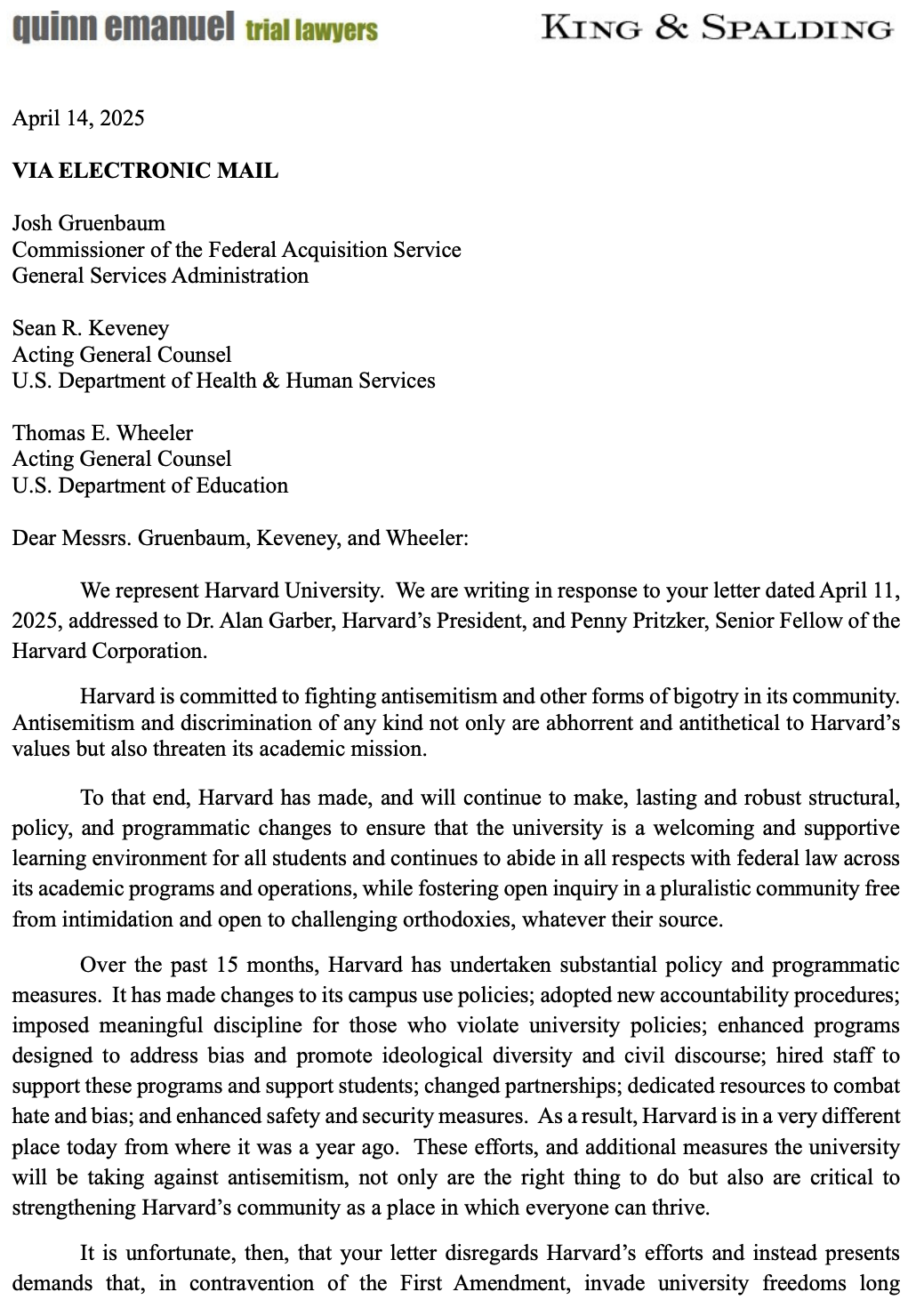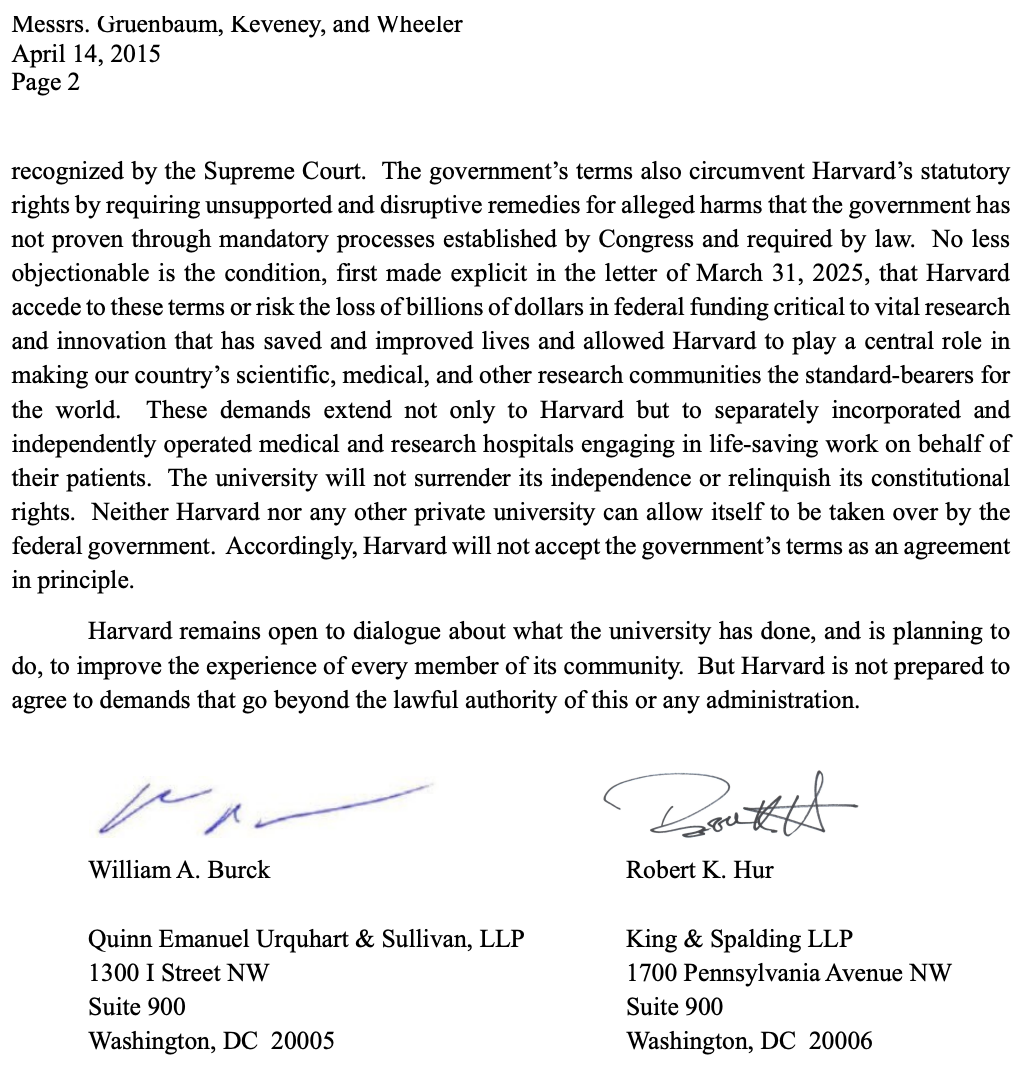‘We have informed the administration through our legal counsel that we will not accept their proposed agreement,’ writes president Alan Garber
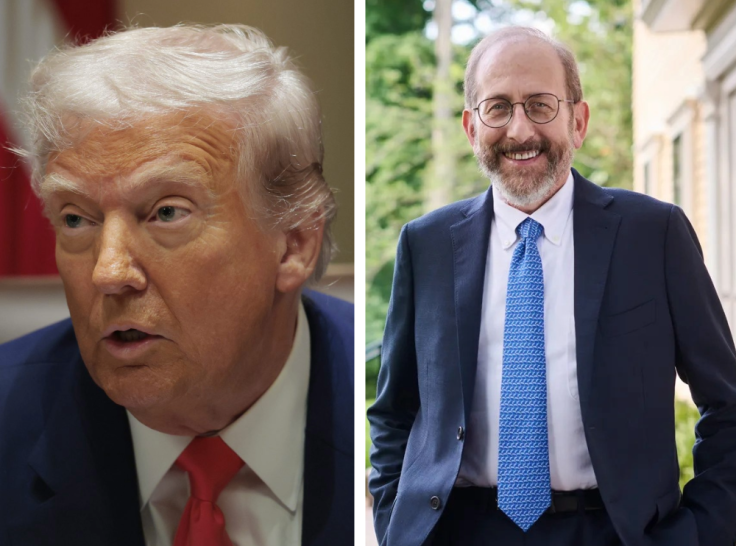
Harvard University told the Trump administration to pound sand—and take $9 billion in federal grant money along with it.
The school has advised its attorneys not to pursue a deal with the administration over a series of demands, several aimed at combating anti-Semitism on campus, according to an email sent Monday to faculty members from university president Alan Garber. The decision puts billions of dollars in federal funding to Harvard at risk: The Trump administration announced late last month that it was examining nearly $9 billion in grants and contracts to the school.
“We have informed the administration through our legal counsel that we will not accept their proposed agreement,” Garber wrote. “The University will not surrender its independence or relinquish its constitutional rights.”
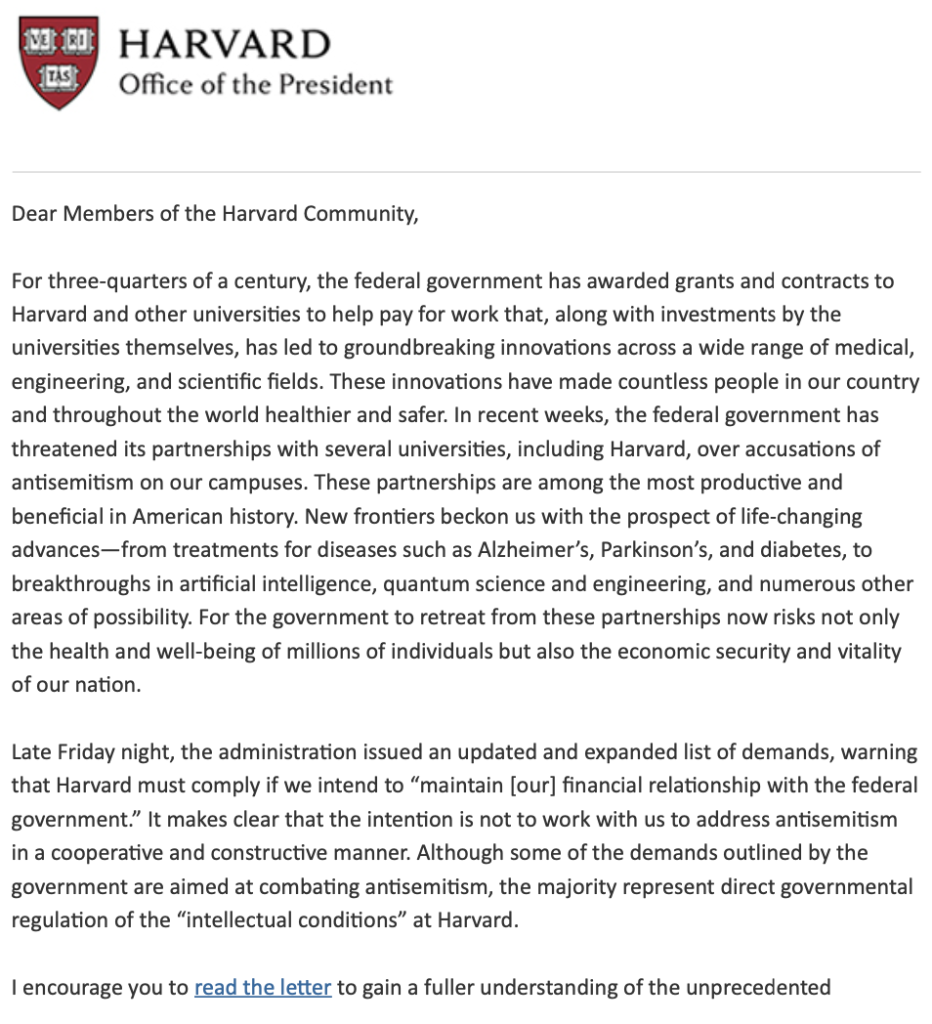
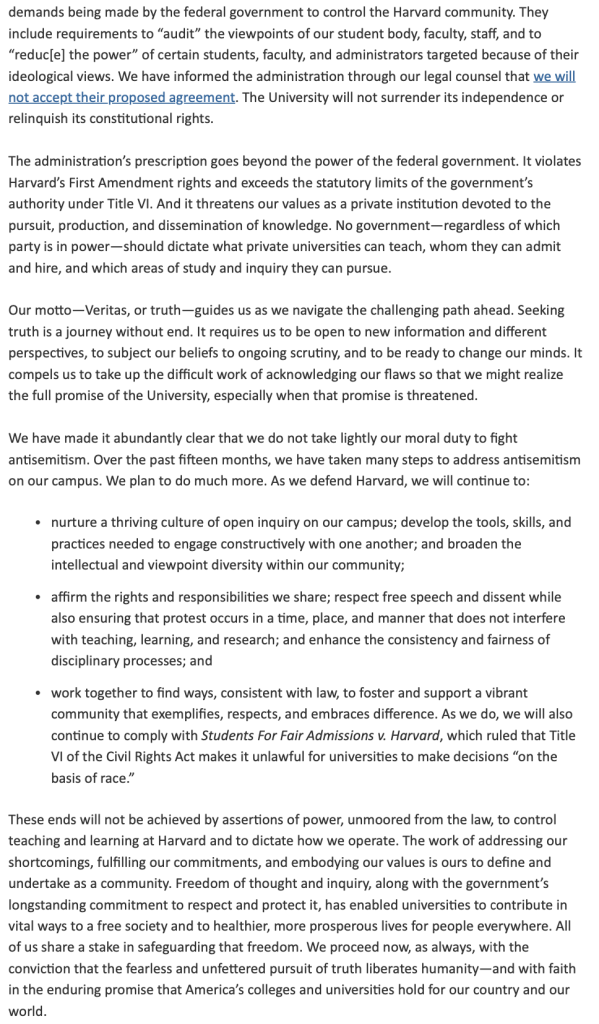
The Trump administration had demanded a series of policy changes including a “comprehensive mask ban,” an audit of “programs and departments that most fuel antisemitic harassment,” and meaningful disciplinary action “for all violations that occurred during the 2023-2024 and 2024-2025 academic years,” including the expulsion of two students who have now been criminally charged for accosting an Israeli classmate shortly after Oct. 7.
Garber said those demands go “beyond the power of the federal government,” violate “Harvard’s First Amendment rights,” and threaten “our values as a private institution.” The message included a link to a letter from Harvard’s attorneys to the Trump administration, also sent Monday, that says the university “will not accept the government’s terms as an agreement in principle.”
“Harvard remains open to dialogue about what the university has done, and is planning to do, to improve the experience of every member of its community,” the legal letter states. “But Harvard is not prepared to agree to demands that go beyond the lawful authority of this or any administration.”
The move sets Harvard on a different course than Columbia University, which agreed, at least in writing, to similar demands from the Trump administration. In Columbia’s case, the Trump administration launched a review of $5 billion in federal funding to the school before slashing approximately $430 million in grant money.
Harvard’s $53 billion endowment dwarfs that of Columbia’s, which sits at $15 billion. Still, the school has signaled that the suspension of federal funds will have a material impact. “If this funding is stopped, it will halt life-saving research and imperil important scientific research and innovation,” Garber said last month. The university also implemented a hiring freeze in response to “substantial financial uncertainties driven by rapidly shifting federal policies.”
Harvard agreed to make some changes aimed at curbing anti-Semitism in January, when it settled a lawsuit with a group of Jewish students. Those changes include the adoption of the International Holocaust Remembrance Alliance’s definition of anti-Semitism as well as non-discrimination protections for “Zionists.”
Garber’s letter does not address the settlement explicitly but does say Harvard has “taken many steps to address antisemitism on our campus” and plans “to do much more.” That’s not enough for the Trump administration.
“While Harvard’s recent actions to curb institutionalized anti-Semitism—though long overdue—are welcome, there is much more that the university must do to retain the privilege of receiving federal taxpayers’ hard-earned dollars,” one member of the Trump administration’s anti-Semitism task force, Josh Gruenbaum, said in a March 31 press release announcing the $9 billion funding review.
“This administration has proven that we will take swift action to hold institutions accountable if they allow anti-Semitism to fester. We will not hesitate to act if Harvard fails to do so.”


